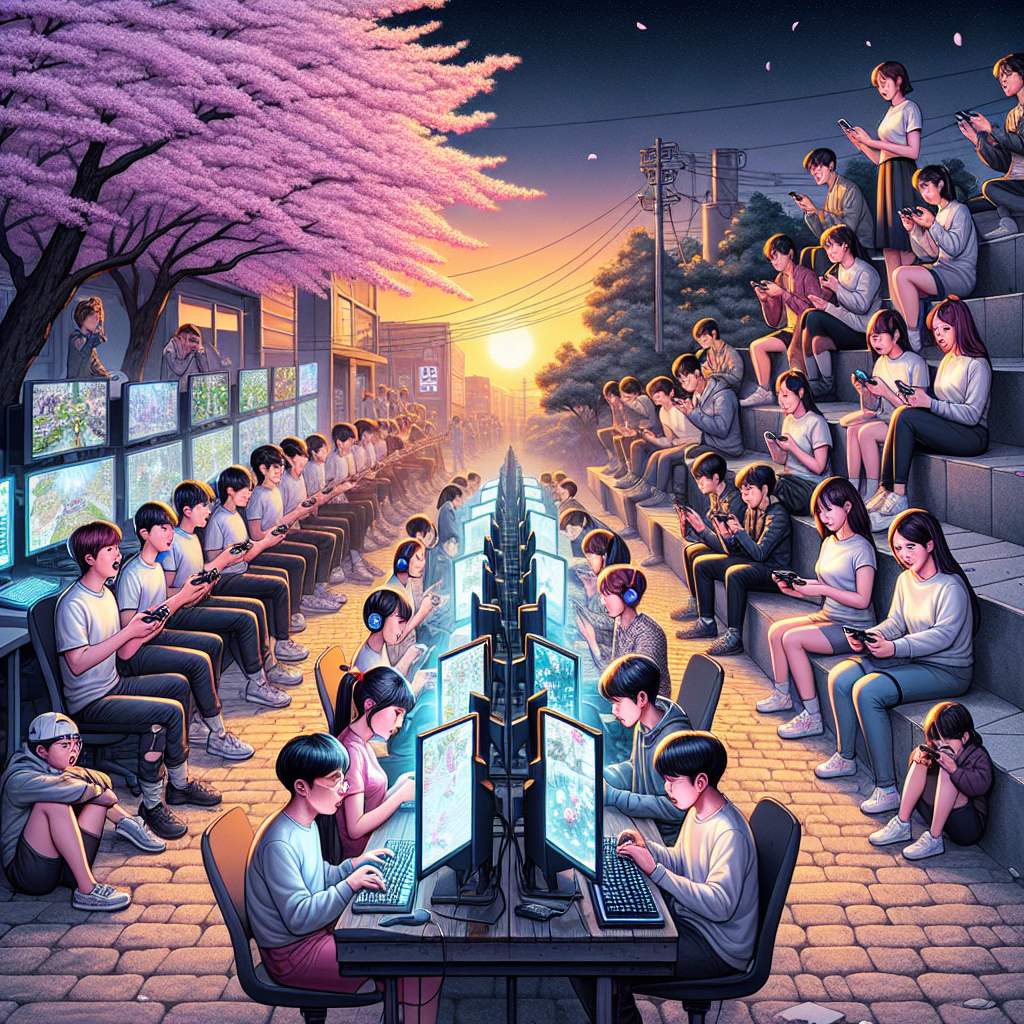From PC Bangs to Mobile Madness: How Gaming Shapes South Korean Youth
In the vibrant landscape of South Korea, gaming occupies a pivotal place in the culture, economy, and social fabric of the nation. From the bustling halls of PC bangs (gaming cafes) to the palm of their hands through mobile devices, the evolution of gaming has transformed South Korean youth in profound ways. This article explores how gaming has influenced the habits, identities, and social dynamics among the younger generations in South Korea.
The Rise of PC Bangs
In the late 1990s and early 2000s, PC bangs became the heart of South Korean gaming culture. These gaming cafes offered high-performance computers and fast internet connections, providing a communal space where friends could gather to play competitive games like Starcraft and League of Legends. The allure of the PC bang was not just the gaming experience, but also the social environment they fostered. They became breeding grounds for friendships, rivalries, and a burgeoning esports scene.
The popularity of these cafes attracted millions of youth, changing perceptions of gaming from a solitary activity to one that nurtures community and competition. Young South Koreans would spend hours, sometimes days, at these venues, immersed in vibrant gaming cultures that often celebrated teamwork and camaraderie. The local esports scene began to flourish, with professional gamers emerging as national celebrities, further fueling the dreams of countless youths.
The Shift to Mobile Gaming
As technology advanced, so too did the gaming habits of South Korean youth. The advent of smartphones dramatically altered the landscape. Mobile games surged in popularity, with titles like Lineage 2: Revolution and PUBG Mobile captivating players across the nation. The portability of these games meant that young people could engage in gaming anywhere and at any time, breaking down the exclusivity that once defined PC bangs.
The shift from traditional PC gaming to mobile gaming reflects a broader generational change. With busy academic schedules and increasing pressures to succeed in a hyper-competitive society, mobile gaming offered a convenient escape. Youth could play during commutes, between classes, or while waiting for friends, allowing gaming to integrate seamlessly into their daily lives.
Gaming’s Influence on Identity and Socialization
In South Korea, gaming is more than just a pastime—it’s a crucial component of youth identity. Many young people identify themselves through their gaming experiences, forming social networks centered around gaming communities. Online platforms and social media allow these communities to thrive, enabling gamers to share their achievements and engage in discussions about strategies, experiences, and fandoms.
Moreover, the competitive nature of gaming fosters a sense of belonging and purpose. Gamers band together in teams and clans, often forming long-lasting friendships that extend beyond the virtual realm. For some, gaming provides a space to express their creativity through content creation, streaming, and gaming tournaments. Celebrities, influencers, and streamers have emerged from this culture, further legitimizing the status of gaming within South Korean society.
Educational and Economic Impacts
The gaming phenomenon also raises questions about academic performance and balance. While many parents and educators have expressed concerns over the potential negative effects of excessive gaming, the reality is that many young gamers harness their skills in constructive ways. Competitive gaming has led to the establishment of formal training programs, games as educational tools, and opportunities for scholarships in esports.
Economically, the gaming industry has exploded, positioning South Korea as a global leader in both game development and esports. As of the early 2020s, the country boasts significant revenues from gaming-related activities and a diverse ecosystem involving developers, professional teams, and live-streaming platforms. An entire generation of South Korean youths is inspired to pursue careers in gaming and tech, reshaping the workforce in significant ways.
Challenges and Future Directions
Despite the boons of gaming culture, several challenges remain. The allure of gaming can lead to addiction and various health concerns among youth. The South Korean government has taken steps to address these issues through initiatives aimed at promoting healthy gaming practices and educating young people on balancing their online and offline lives.
Looking ahead, the future of gaming in South Korea looks promising. As technologies such as virtual reality (VR), augmented reality (AR), and artificial intelligence (AI) continue to evolve, they promise to redefine the gaming experience once more. The trends around mobile gaming are likely to see further innovation, ensuring that gaming remains an integral aspect of youth culture for generations to come.
Conclusion
The journey from PC bangs to mobile gaming has profoundly shaped the lives of South Korean youth. Gaming has transformed from a mere hobby into a cultural phenomenon that influences social relationships, identity formation, and even economic opportunities. As the landscape continues to evolve, the impacts of gaming will likely persist, illuminating the remarkable ability of digital spaces to connect, empower, and transform the lives of young people in South Korea and beyond.




